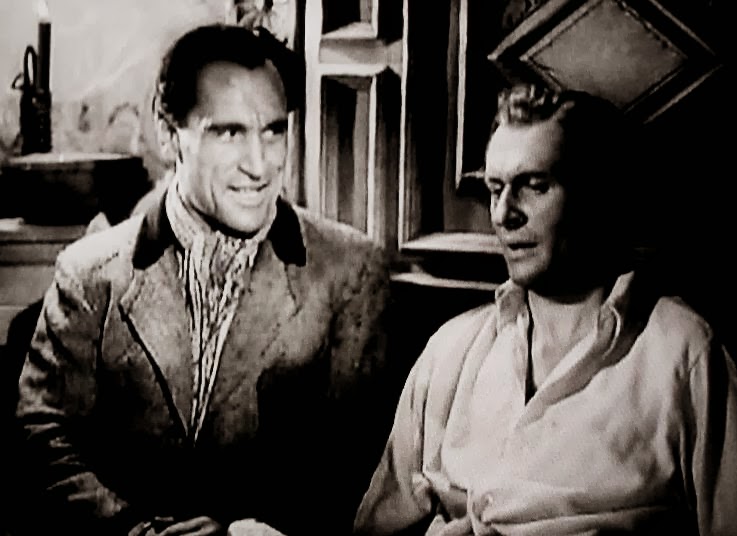 In the early days of the Second World War, Wedge Donovan (John Wayne), head of a construction company, has been hired by the Navy to take his men out to islands in the Pacific and build bases and airstrips. They come under fire from the Japanese but because it is illegal to arm civilians, they can't fight back and some of his men come home wounded, and some don't make it home at all. Hot-headed Donovan is understandably upset and Lieutenant Commander Yarrow (Dennis O'Keefe) wants to help, so he takes Donovan to Washington to argue for an official construction brigade before they head out to the Pacific on another job. Reporter Connie Chesley (Susan Hayward), also Yarrow's girlfriend, goes along for the story and starts to fall for Donovan. On the island, the Japanese attack and Donovan tells his men to grab some guns and start shooting. Though the enemy is driven away, Donovan's meddling messes up Yarrow's careful plan of attack, leading to many casualties. Despite this, Yarrow's boss OKs the creation of Construction Brigades (CBs = Seabees) and the workers become full-fledged soldiers with training and weapons. Eventually, while building oil tanks on an island, the men get their first taste of "official" action.
In the early days of the Second World War, Wedge Donovan (John Wayne), head of a construction company, has been hired by the Navy to take his men out to islands in the Pacific and build bases and airstrips. They come under fire from the Japanese but because it is illegal to arm civilians, they can't fight back and some of his men come home wounded, and some don't make it home at all. Hot-headed Donovan is understandably upset and Lieutenant Commander Yarrow (Dennis O'Keefe) wants to help, so he takes Donovan to Washington to argue for an official construction brigade before they head out to the Pacific on another job. Reporter Connie Chesley (Susan Hayward), also Yarrow's girlfriend, goes along for the story and starts to fall for Donovan. On the island, the Japanese attack and Donovan tells his men to grab some guns and start shooting. Though the enemy is driven away, Donovan's meddling messes up Yarrow's careful plan of attack, leading to many casualties. Despite this, Yarrow's boss OKs the creation of Construction Brigades (CBs = Seabees) and the workers become full-fledged soldiers with training and weapons. Eventually, while building oil tanks on an island, the men get their first taste of "official" action.This is an almost completely fictionalized story of the creation of the Seabees, and also a great example of the kind of wartime propaganda movie I enjoy. There is action, with explosions and sacrifice, but there are also relatively rounded characters and humor. Of course, clichés abound: the cocky individual who has to learn his lesson and work as part of a team (Wayne), the more even-tempered buddy who has to help the cocky guy grow (O'Keefe), and the girl in the middle (Hayward). There aren't many surprises but it's well done all around, particularly the battle scene in the middle of the movie. Recognizable supporting players include William Frawley, J.M. Kerrigan and Leonid Kinskey. Wayne even gets a musical number, sort of, when he dances a jitterbug with a hot blonde. [DVD]









